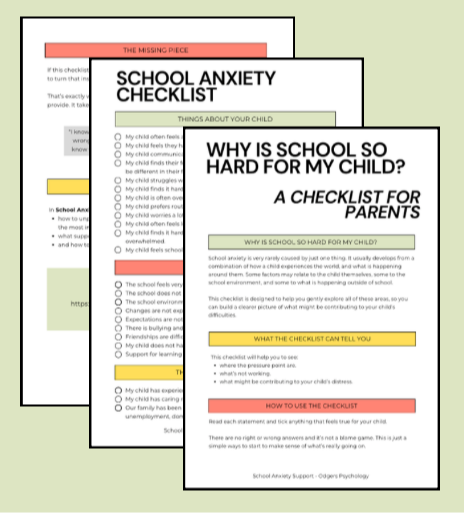After school explosions! Why they happen and what to do about them.
Sep 15, 2025Think of the school day as being a little bit like a balloon. Every little bit of stress adds another puff of air into the balloon. You can't do the work. That's one puff. You're having problems with your friendships. That's another puff. The environment is too noisy. It's too crowded, it's too busy. That's another puff. You're too overwhelmed to eat at lunchtime, so then you end up hungry. That's another puff. You find it really hard to concentrate during the day. That's even more pressure. And worries about the unknown can add an awful lot of stress at this point in the school year.
So many kids manage to hold it together during the school day, but then at the end of the school day, they come out and they see their parents who who safe and boom, the balloon pops. And that's when you get the explosion.
So what can you do about it?
Try and think about ways that you can let a little bit of air out of the balloon before it reaches the explosion point.
So this might look like ensuring your child has something to eat when they come back from school, particularly if you've got any suspicion at all that they haven't been able to eat properly during the school day. It might also look like planning for them to have a little bit of downtime, some peace and quiet when they get back home to rest and recover. And they could be doing all sorts of different things during this time. They could be listening to music. They could just be retreating to their room to spend some time doing some favoured activities. They could be spending a little bit of time gaming or they might be watching a favourite program on their iPad.
Kids who find it really tricky to stay still, might need to do some proper movement after they come out of school, particularly if they've been cooped up all day. These kids might need to run around in the park or a game of football or to jump on a trampoline. Physical activity, is an opportunity to burn off all that frustrated energy gained through sitting still all day.
And kids who have a preference for certainty may benefit from having a visual timetable that shows them what they're going to do after school, as that can help support that transition from school back into home life
Where you can try and reduce afterschool demands. So that might mean reducing afterschool activities, no play dates for a while, and making sure they have a proper gap before they start doing their homework.
If your child's feeling wobbly, being asked how their school day went, might feel like one more unpleasant demand on your child when they come out of school. So I suggest that before you ask them how their day was, you just spend a little bit of time tuning into how they're feeling. It might sometimes be better just to gently label what you see. For example, "You are looking really fed up at the moment"
Or you could perhaps get into a routine where your child just communicates how the day went through a simple visual, and that could be something like thumbs up, (it was great day) or thumbs down (terrible day).
If your child does have a problem and they're happy to talk about it with you, just make sure that you don't launch into problem solving too early. Sometimes kids, like adults, don't want others to solve their problems. They just want to feel heard.
Longer term, the aim is to understand what's making school so difficult in the first place so that less air goes into the balloon. If your child finds it hard to explain what's making school so tricky, using a tool like my School Attendance Clarity Cards can really help.


